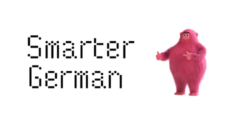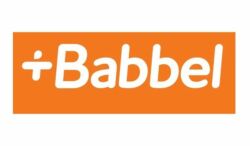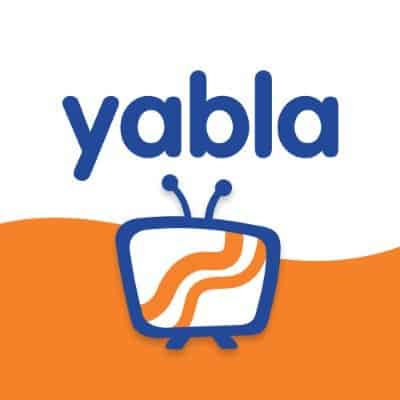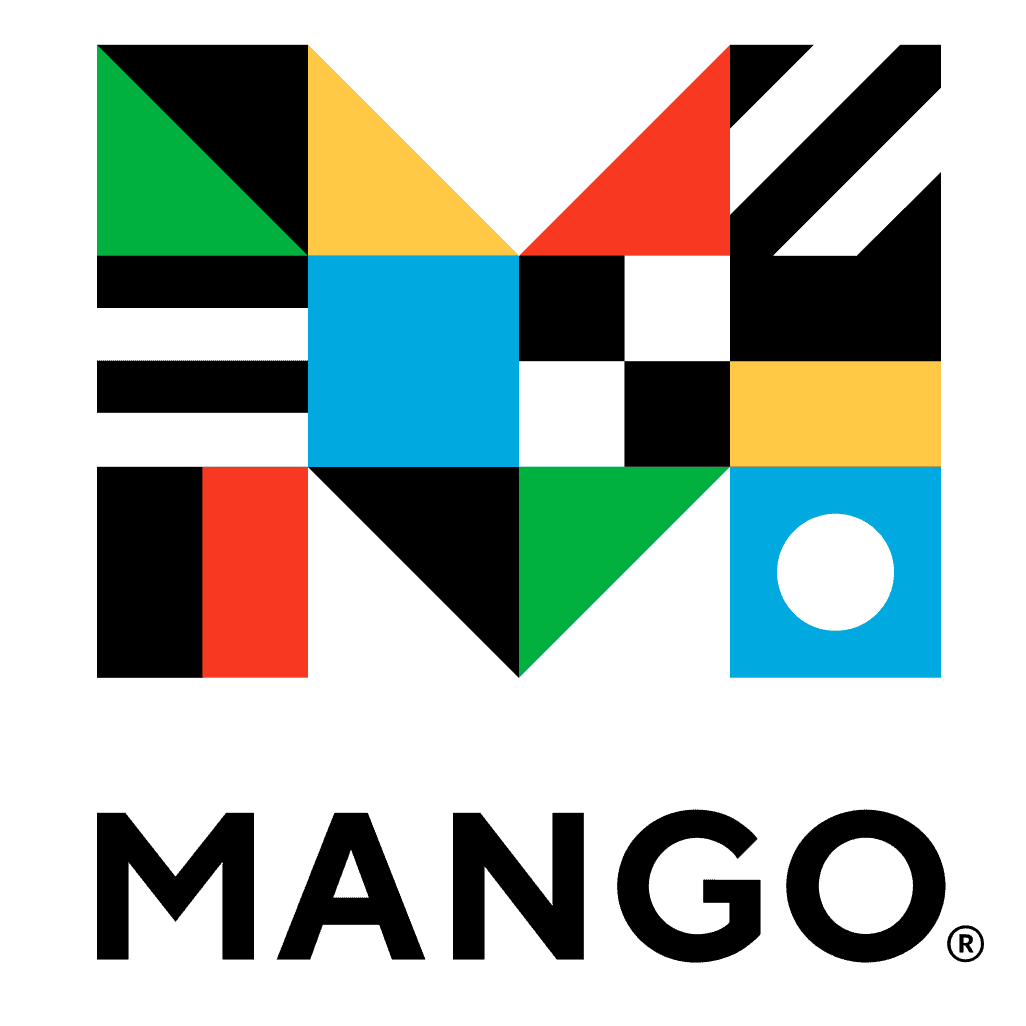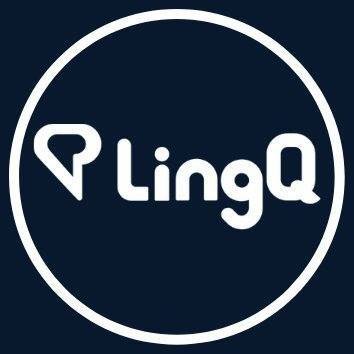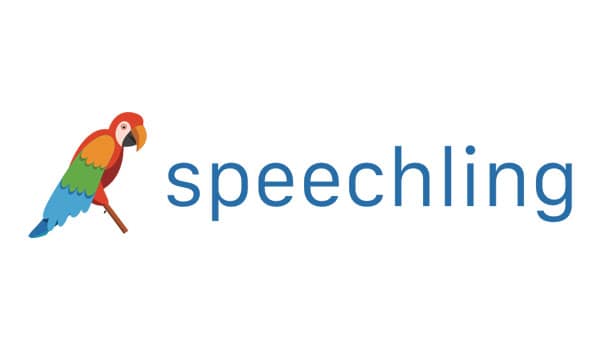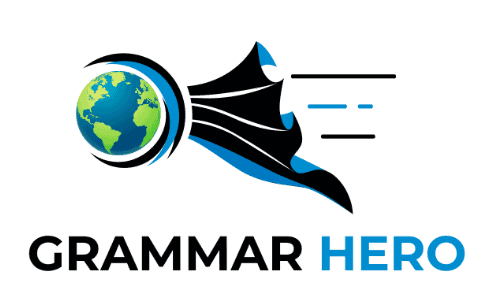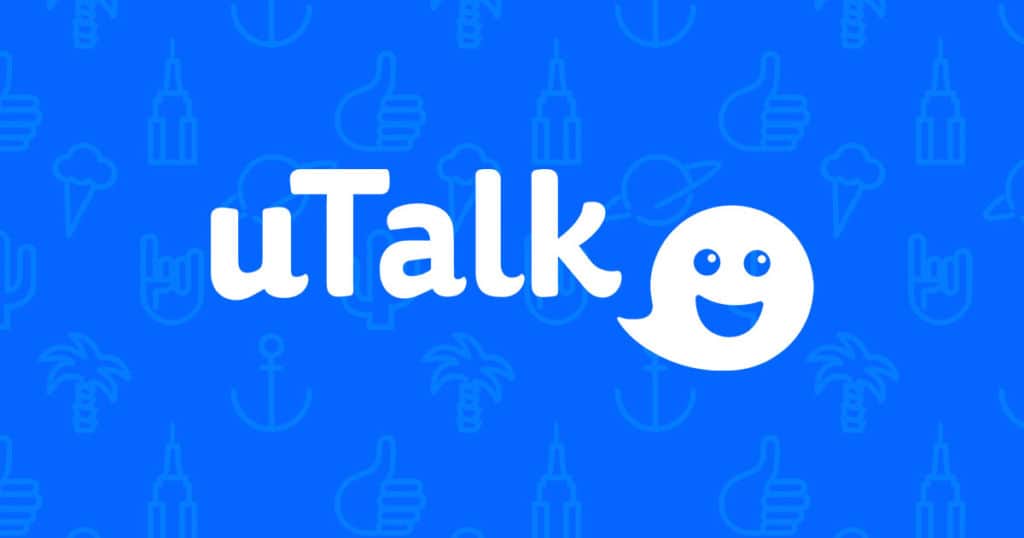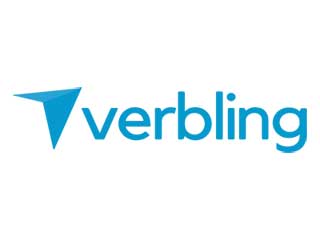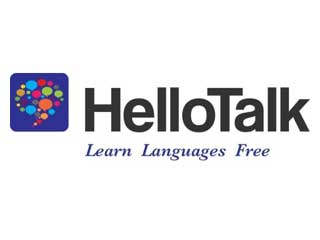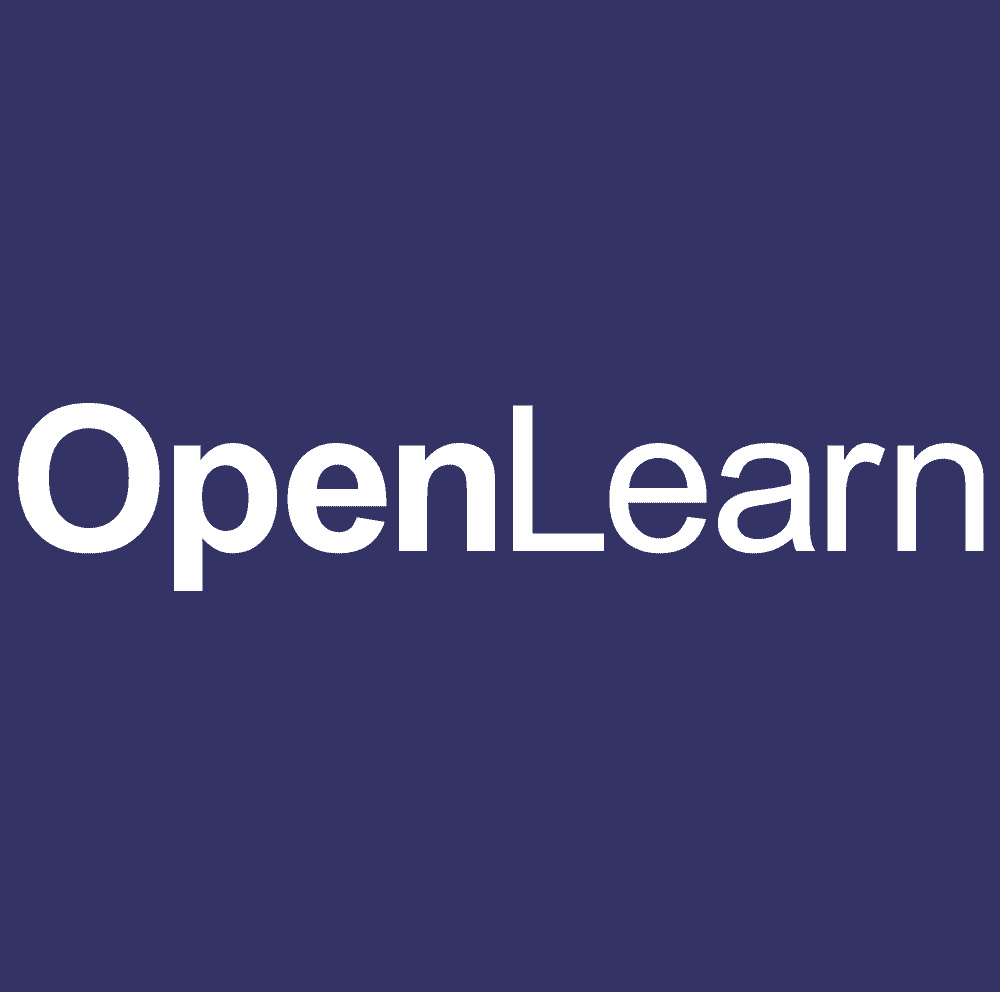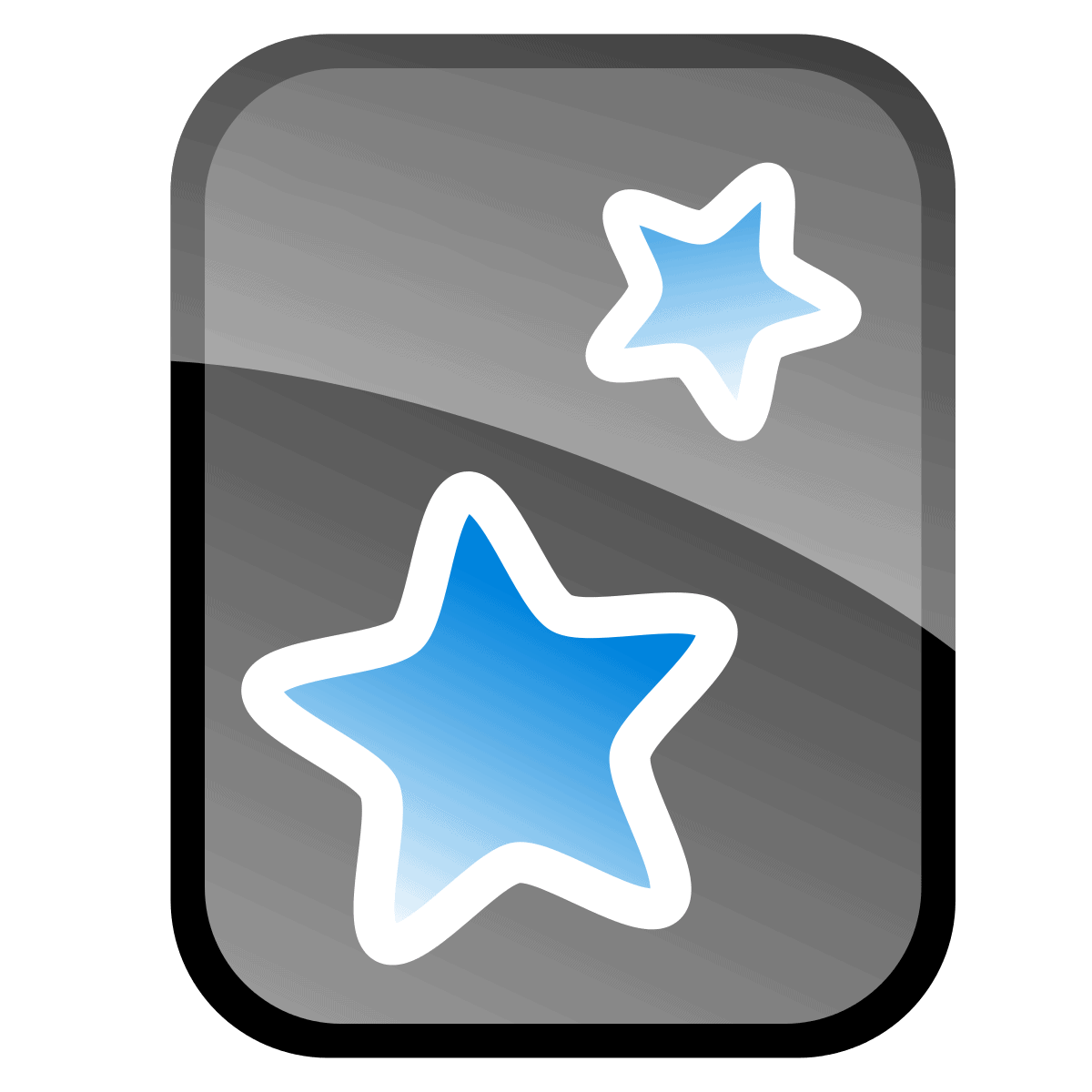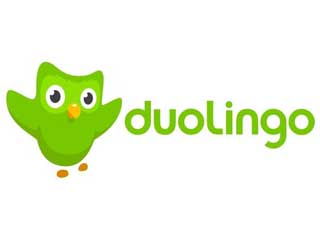German’s bad rap is entirely undeserved. Some of Europe’s greatest thinkers and writers spoke German. What’s more, it’s simultaneously fun and poetic, expressive and logical, and incredibly useful.
German has given us terms such as schadenfreude, kitsch, and doppelgänger – and those are just the ones that we use in English. Do you know of any other language that would describe overtaking lorries that block the road as elephant racing? Or have words for the therapeutic experience of being alone in a forest, thinking of the perfect retort too late, and being pained by the world?
Our thoughts on the myth that German is difficult? Granted, the grammar can be a bit of a challenge for native English speakers. However, it’s widely reported that around a quarter of English words are of Germanic origins. We cannot guarantee that this statistic is correct, but there’s no denying that German and English share a lot of vocabulary. As you begin learning German, you’ll quickly discover how easy it is to recognize new words.
With the right course, grammar, vocabulary and pronunciation will become less of a challenge for you. You’ll understand how German works, and perhaps, learning will be enjoyable, you’ll stay motivated, and be able to speak it confidently.
This is a round up of our best-rated German courses – and there were plenty to choose from. Here at All Language Resources, we’ve reviewed over 100 German resources, and we haven’t shied away from being honest.
The courses on this list have something that sets them apart. Whether you’re looking for audio lessons, gamified apps, a traditional approach to language-learning, pronunciation practice, intermediate grammar breakdowns, or something else altogether: you’ll find it on this list.
Table of Contents
Table of Best Courses to Learn German
Links below will send you to the course websites, and the course details are down below:
OVERALL BEST
An Intense Story-Based Course That Will Teach You to Understand German: SmarterGerman
Gamified Courses for Nearly All Levels and Skills: Babbel German
Learn German Through Reading and Listening to a Novel: German Uncovered
High-Quality Audio Courses Centered Around Vocabulary Retention: Pimsleur German
Ideal for False Beginners and Rusty Learners: Ouino
Best Non-Beginner Video Course: Yabla
BEGINNER’S COURSES
Best Beginner Course With Engaging Stories: Storylearning German Uncovered
Beginner-Appropriate Courses With Lots of Listening Practice: Bite Size Languages
Compare Your Pronunciation to a Native Speaker’s: Mango Languages
READING AND LISTENING
Relaxed Podcast-Style German Lessons: Coffee Break
Read Your Favorite Content: LingQ
Short-and-Sweet Podcast Lessons Will Teach You How to Build Sentences: Language Transfer
SPEAKING AND WRITING
Best for Improving Oral Communication Skills: Pimsleur German
Good for Intermediate Students Wanting to Practice Speaking: Glossika
Best For Checking Your German Pronunciation: Speechling
VOCABULARY ACQUISITION
Intermediate-Level Grammar Taught Through a Story: Grammar Hero
Most Enjoyable Vocabulary Practice: Memrise
Best for Learning Key Words & Phrases: uTalk
A Decent Course With a Useful Social Feature: Busuu
Gamified App With Good Grammar Explanations and Drills: Lingodeer
TUTORS AND LANGUAGE EXCHANGES
Tutoring Help No Matter Your Ability Level: italki
Great Way to Find Tutors and Classes: Verbling
Best Way to Find Language Exchange Partners While Taking Its Audio Lessons: HelloTalk
Overall Best German Learning Courses
The courses in this category cover multiple areas of language learning and give learners a more comprehensive understanding of the German Language.
An Intense Story-Based Course That Will Teach You to Understand German
If you’ve ever scored 100% on a German app or exam but still felt like you wouldn’t know how to create your own sentences or handle a real conversation, then you’re not alone. smarterGerman, however, could be the answer.
Rather than getting you to memorize highly specific phrases and then quizzing you with questions that are far too easy to guess, it forces you to problem-solve your way through a German crime story. Along the way, you’ll learn about grammar, practice free speaking in German on topics of your choice, study vocabulary, write about topics without using a dictionary, and more.
With smarterGerman, you will practice all the main skills – reading, writing, speaking, and listening – as well as learning vocabulary, pronunciation, and grammar. There’s a huge range of exercises and drills.
For dedicated students, smarterGerman is an excellent introduction to the language. However, it’s undeniably a challenging course. You will have to push yourself hard, and even motivated students will likely find it intense.
Alternatively, if you like the sound of smarterGerman’s methods but want a more relaxed approach, take a look at the story-based course German Uncovered (review). Grammar Hero (review) is another story-based course that’s designed for intermediate learners.
Pros
- A comprehensive course, with reading, writing, speaking, listening, vocabulary, pronunciation, and grammar
- Encourages you to understand rather than memorize German
- Lots of drills and practice activities
- An interesting story
Cons
- Challenging approach
- May be intimidating for absolute beginners
- Focused on translation
See our Super-Detailed SmarterGerman Review
Gamified Courses for Nearly All Levels and Skills
Some courses focus on writing. Others focus on speaking. And others on vocabulary. With Babbel, however, you can have it all. As well as the standard level-based courses for newcomers through to independent (pre-advanced) speakers, there are ones for grammar, vocabulary, speaking and listening, reading and writing, business German, idioms, and German culture.
Babbel is another 5-minutes-a-day gamified app. It’s not quite as fun as Duolingo (review) or LingoDeer(review); in fact, it verges on being repetitive at times. However, it’s a bit more in depth than most gamified apps. There are also lots of speech recognition and listening comprehension exercises.
There’s a heavy focus on memorizing set phrases. On one hand, this has its positives: you learn the new language in context. On the other hand, you’re not encouraged to apply the language to other situations. As such, most learners will benefit from doing some independent study alongside Babbel, especially writing practice and grammar reviews.
However, for casual learners looking for a one-stop course that’s not too challenging, Babbel is a good option. In fact, one ALR team member successfully used Babbel to learn a language, and they found it enabled them to communicate confidently while traveling.
Pros
- Courses for newcomers through to “independent” speakers
- Courses on specific skills and topics, including grammar, vocabulary, speaking and listening, and reading and writing
- Speech recognition exercises
- Listening comprehension exercises
Cons
- Doesn’t have material for advanced learners
- Less entertaining than other gamified apps
- The main courses have limited grammar reviews
Countdown to Summer Sale! Get 60% off Babbel Lifetime Subscriptions. See details on the website. Offer ends on 5/5/2024.
See our Super-Detailed Babbel German Review
Learn German Through Reading and Listening to a Novel
Wouldn’t it be nice if your German textbook was as interesting as your favorite novel? Well, with German Uncovered, it could be.
This course is designed to take you from complete beginner to intermediate-level speaker. But unlike most courses, it does so through a 20-chapter novel. That’s right, even if the only German words you know are hamburger, hamster, and über, you’re still going to begin by reading a novel.
First, you’ll read and listen to a chapter of the novel. Then, you’ll study the relevant vocabulary, grammar, and pronunciation. Finally, you get a workbook and quiz, along with a practice document that you can use with a teacher. Next stop is chapter two.
There are also some bonus materials specific to the German Uncovered course, such as a list of vetted tutors and a video on German dialects.
Not everyone likes being thrown into the deep end. Some learners may prefer a more traditional German course, like Babbel or Pimsleur. And then there are those who like the sound of German Uncovered, but want something even more challenging. (If that’s you, try smarterGerman.)
But for some learners, German Uncovered is the Goldilocks of German courses: fun but with quality explanations. Challenging, but with plenty of support. And a story that keeps you coming back for more.
Pros
- Lots of reading and listening practice
- A well-written, interesting story
- It’s fun
Cons
- Some learners could feel overwhelmed
See our Super-Detailed German Uncovered Review
High-Quality Audio Courses Centered Around Vocabulary Retention
Feeling overwhelmed by the 144 flashcards you need to review today? Struggling to remember your German vocabulary lists? Wondering if das Eichhörnchen will ever flow smoothly off the tongue?
It’s these highly relatable struggles that the Pimsleur method sets out to solve. It evolved out of Dr. Pimsleur’s scientific research into language acquisition, and has four principles: never learning too much at a time, studying new vocabulary in context, revisiting the vocabulary after increasingly longer intervals, and giving you time to formulate the correct answer.
There’s far more to Pimsleur than just vocabulary, however. You’ll also pick up essential phrases, some basic grammar, cultural insights, and more.
In each 30-minute audio lesson, you’ll hear the new vocabulary used in conversation, followed by some brief explanations. Then, you’ll practice saying the target phrases and creating the sentences yourself. You’ll also use a technique called backchaining to help you get the hang of German pronunciation.
Most learners will want to use additional resources, however. You don’t get much writing or reading practice; grammar explanations are also minimal. And if you’re an impatient person, the audio lessons can feel slower than traveling on one of Germany’s many long-distance train routes.
Pros
- Well-structured lessons that build on each other
- The lessons encourage active rather than passive learning
- The method is backed up by scientific research
- You can learn on the go
Cons
- The 30-minute-long audio lessons can drag
- Limited focus on grammar
- Very little reading and writing practice
- Visual learners may find it’s not the best resource for them
- The supplementary practice activities feel basic and not overly useful
See our Super-Detailed Pimsleur German Review
Ideal for False Beginners and Rusty Learners
Have a vague idea of der–die–das? Memories of learning the genitive case, but dispiritingly few memories of what it actually is? A rough idea of German pronunciation, paired with a hazy recollection of the vocabulary? Ouino might be a good choice for you.
With Ouino, you can choose between following their recommended study path or diving into the topics you want to study. This means it’s ideal for false beginners and pre-exam revision.
Ouino is the kind of course that’s easily overlooked. Next to innovative or gamified German courses like German Uncovered (review) and LingoDeer (review), it just doesn’t seem that exciting.
Yet Ouino’s got plenty to offer. The high-quality lessons will teach you pronunciation, vocabulary, sentence structure, verb conjugation, natural dialogues, and more. The grammatical explanations are detailed, with color-coding used to underscore linguistic patterns.
There’s material up to the upper-intermediate level, although there’s less content at higher levels. Exercises are repetitive but effective, while you can choose to read or listen to lessons. And with over 400 lessons, 1,200 exercises, and 60 short stories, you won’t run out of things to study any time soon.
Pros
- Huge amount of material
- Practical conversation practice
- Detailed pronunciation guide
- Can study the recommended pathway or pick and choose the lessons that interest you
- Good for visual and aural learners
Cons
- You have to download the software
- The exercises can be repetitive
- Absolute beginners may find the amount of content overwhelming
- No pronunciation feedback or voice recognition
Limited time offer. Lifetime Access is only $95.76!! You can get an additional language for 50% off, OR you could get all 5 languages for life for $191.52. You should know that Ouino enjoys one of the lowest product return rates in the industry. 🙂
See our Super-Detailed Ouino Review
Best Non-Beginner Video Course
Yabla is a language-learning platform that uses videos with interactive subtitles and language games to help users learn a language. It’s currently available on the web and for iOS, with an Android app in development. Its videos are of varying difficulty levels and types, and are either sourced from the internet or originally produced, but all videos use native speakers.
Pros
- It’s very affordable
- The review activities are enjoyable and varied
- You can filter content by region
- There are plenty of interesting and varied videos
Cons
- Audio in some review activities is robotic
- No speaking practice
- Translations don’t take context into account
See our Super-Detailed Yabla Review
Best German Beginner’s Courses
As a beginner, learning any language may seem a bit daunting, but as long as you have a solid foundation, you have nothing to worry about. These courses are our top choices for German beginners.
Best Beginner Course With Engaging Stories
Wouldn’t it be nice if your German textbook was as interesting as your favorite novel? Well, with German Uncovered, it could be.
This course is designed to take you from complete beginner to intermediate-level speaker. But unlike most courses, it does so through a 20-chapter novel. That’s right, even if the only German words you know are hamburger, hamster, and über, you’re still going to begin by reading a novel.
First, you’ll read and listen to a chapter of the novel. Then, you’ll study the relevant vocabulary, grammar, and pronunciation. Finally, you get a workbook and quiz, along with a practice document that you can use with a teacher. Next stop is chapter two.
There are also some bonus materials specific to the German Uncovered course, such as a list of vetted tutors and a video on German dialects.
Not everyone likes being thrown into the deep end. Some learners may prefer a more traditional German course, like Babbel or Pimsleur. And then there are those who like the sound of German Uncovered, but want something even more challenging. (If that’s you, try smarterGerman.)
But for some learners, German Uncovered is the Goldilocks of German courses: fun but with quality explanations. Challenging, but with plenty of support. And a story that keeps you coming back for more.
Pros
- Lots of reading and listening practice
- A well-written, interesting story
- It’s fun
Cons
- Some learners could feel overwhelmed
See our Super-Detailed German Uncovered Review
Beginner-Appropriate Courses With Lots of Listening Practice
Tired of German lessons that are 80% English – or more? You might find Bite Size Languages to be a refreshing change.
Bite Size Languages’ courses use comprehensible input. This is a common language-learning technique backed up by plenty of studies. The idea is that listening to or reading interesting material that you can understand but is slightly above your level will help you naturally learn the language.
As such, you dive straight into short dialogues that are designed to introduce you to level-appropriate vocabulary and grammar. You can just listen to the dialogues, or you can make use of the additional materials: transcripts, word-by-word translations, cultural tips, and concise grammar notes.
The lessons are designed to be bite-sized. Even if you use all the additional materials, you’ll probably only spend 15–25 minutes on them. There’s plenty of content, however, since there are 100 different lessons.
Pros
- Lots of listening practice
- The audio recordings slowly get faster
- Good audio quality
- Very limited use of English
Cons
- Grammar explanations may be too brief for some users
- No practice activities
Compare Your Pronunciation to a Native Speaker’s
No matter how many pronunciation drills and tongue twisters you do, sometimes it’s hard to get your pronunciation just right. But with Mango Languages, you’ll be able to polish your pronunciation while learning vocabulary, grammar, and essential phrases.
It’s similar to Pimsleur: you start off by listening to a dialogue and then receiving a grammar or cultural explanation. You then practice building your own sentences and questions using the target language. Repetition is a key feature of this method, but the lesson pace doesn’t feel quite as slow as Pimsleur’s. After all, it’s an app rather than an audio file: you can click “next” as quickly or slowly as you want to.
For a language like German, however, Mango Language’s star feature is arguably the ability to record yourself speaking a German phrase and then lay it over a native speaker’s recording to compare the two. You can repeat this as many times as you want – meaning you have all the time you need to work on intonation, stress, and those tricky vowel sounds.
Bear in mind that Mango Languages is mainly focused on speaking and listening. For reading and writing practice, you’ll need to pair it with a different resource.
Pros
- It’s great for spotting unnatural pronunciation
- You’ll practice making sentences from the first lesson
- Lessons build on each other well
- Some North American libraries and universities offer free access
Cons
- Limited focus on writing and reading
- Some users find the heavy drilling monotonous
- Only caters for beginner and lower-intermediate learners
See our Super-Detailed Mango Languages Review
Courses to Learn German Reading and Listening
By reading German text and listening to German audio material, you’ll develop a clear understanding of how it is presented and how it sounds. In no time, your German comprehension skills will improve. The courses below provide great reading and listening practice.
Relaxed Podcast-Style German Lessons
Feeling intimidated by German? Ease yourself in with Coffee Break German. These chilled-out lessons will help you feel at ease with der–die–das–die and much more.
Coffee Break German has two parts: a free podcast and a range of premium courses. Listen to the podcast to hear German taught in pressure-free lessons. You’ll pick up grammar, vocabulary, important phrases, cultural insights, and more.
With most premium courses, meanwhile, you’ll get ad-free podcast lessons, access to lesson notes with words’ orthography, a video version of the course, and a bonus audio lesson with additional vocabulary and translation exercises.
There’s a wide variety of courses for you to choose from: the standard Coffee Break German; A Flavour of German, which focuses on idioms; Reading Club, where you get audio lessons alongside weekly texts; and more.
Pros
- A lot of the course is free
- Fun, interesting, and unintimidating
- Cultural insights
Cons
- Serious learners will need something more in depth
- No writing practice, and in most courses, no reading practice
See our Super-Detailed Coffee Break Review
Read Your Favorite Content
LingQ is a language-learning platform that focuses on extensive reading for over 30 different languages. You can import your own content or choose from the community library of books, articles, podcasts, YouTube videos, and more.
The app highlights unknown words across every lesson and makes them reviewable via different types of SRS flashcards. The more you read, the more accurately you will be able to identify content that is suitable for your level.
Although I did not find it beneficial for languages I had never studied before, I think LingQ can be helpful for upper-beginner to advanced language learners who enjoy reading. It is especially helpful if you struggle to find graded readers in your target language.
Pros
- Easily import almost any material you want to study
- Use SRS flashcards to quiz new words from a specific page
- Each lesson in the library displays the percentage of known and unknown words based on reading history
- There are many dictionaries to choose from for definitions
Cons
- Reviewing words is chaotic
- The extra features are overpriced and can be found other places for cheaper
- Very little of the content is original. Much of it was uploaded by users from other places
- The free version is extremely limited
See our Super-Detailed LingQ Review
Short-and-Sweet Podcast Lessons Will Teach You How to Build Sentences
Most courses start off with learning how to introduce yourself. Language Transfer skips that and starts by explaining the relationship between English and German. That’s because its aim is to help you understand the German language so you can quickly make your own sentences, expand your vocabulary, and more.
Don’t mistake Language Transfer for a dry and academic course, however. There are no dull linguistics lectures. In fact, these short podcast lessons feel like you’re listening in on a relaxed conversation between Mihalis and his students. But in doing so, you’re picking up on a lot of useful information.
On its own, Language Transfer isn’t enough to teach you German. You’ll want to pair it with additional practice activities as well as courses that will teach you essential German phrases.
However, Language Transfer makes for an accessible introduction to the language or useful supplementary material. It will help you feel capable of expanding beyond the material in other courses, textbooks, and apps – and it will only take up 5 to 10 minutes of your day.
Pros
- Helps you understand how German works so you can expand beyond learned material
- Relaxed yet effective
- Interesting
Cons
- No survival phrases
- No expansion activities and drills to help you practice reading, writing, listening, and speaking
- Poor audio quality
See our Super-Detailed Language Transfer Review
Courses With German Speaking and Writing Emphasis
Familiarize yourself with German pronunciation and sentence structure with these courses. With enough practice, you’ll be speaking and writing German comfortably and with great fluency.
Best for Improving Oral Communication Skills
Feeling overwhelmed by the 144 flashcards you need to review today? Struggling to remember your German vocabulary lists? Wondering if das Eichhörnchen will ever flow smoothly off the tongue?
It’s these highly relatable struggles that the Pimsleur method sets out to solve. It evolved out of Dr. Pimsleur’s scientific research into language acquisition, and has four principles: never learning too much at a time, studying new vocabulary in context, revisiting the vocabulary after increasingly longer intervals, and giving you time to formulate the correct answer.
There’s far more to Pimsleur than just vocabulary, however. You’ll also pick up essential phrases, some basic grammar, cultural insights, and more.
In each 30-minute audio lesson, you’ll hear the new vocabulary used in conversation, followed by some brief explanations. Then, you’ll practice saying the target phrases and creating the sentences yourself. You’ll also use a technique called backchaining to help you get the hang of German pronunciation.
Most learners will want to use additional resources, however. You don’t get much writing or reading practice; grammar explanations are also minimal. And if you’re an impatient person, the audio lessons can feel slower than traveling on one of Germany’s many long-distance train routes.
Pros
- Well-structured lessons that build on each other
- The lessons encourage active rather than passive learning
- The method is backed up by scientific research
- You can learn on the go
Cons
- The 30-minute-long audio lessons can drag
- Limited focus on grammar
- Very little reading and writing practice
- Visual learners may find it’s not the best resource for them
- The supplementary practice activities feel basic and not overly useful
See our Super-Detailed Pimsleur German Review
Good for Intermediate Students Wanting to Practice Speaking
Glossika uses audio drills to start out every language (and they offer a lot). With a similar format for every language, this might be a good option if you’re learning more than one language at the same time. Audio lessons cover speaking, listening, and comprehension, so it’s a useful tool for upper-beginner or lower-intermediate learners.
You’ll probably notice a lack of cultural information with Glossika. Of course, the tradeoff is decent instruction with a consistent format that helps if you’re trying to learn multiple languages.
Pros
- Only pay once—when you subscribe, you get every language Glossika offers
- There’s a lot of audio material across tons of languages
- The format is repetitive, in a good way
Cons
- Pricing is steep for what you get
- It’s common to find errors in the courses
- The interface isn’t anything exceptional
See our Super-Detailed Glossika Review
Best For Checking Your German Pronunciation
Speechling is a website and app that makes it easy to improve your speaking skills in several languages. The free version is an incredbily valuable resource that makes it easy to practice mimicking native speakers. The Unlimited Plan provides unlimited corrections of your recordings by a teacher.
Pros
- An excellent method to improve your speaking abilities and get feedback from a real teacher
- Answer the Question, Describe the Image, and Freestyle mode are great for higher levels
- You can switch languages at any time. I like seeing translations in my second language while studying my third language
- Truly unlimited recordings with quick feedback
Cons
- Absolute Beginners should learn the basics elsewhere first
- You’ll need to learn how to make the sounds of your target language on your own
- The amount of time given to record sentences can be too short
See our Super-Detailed Speechling Review
Learn German Vocabulary and Grammar
Expand your German vocabulary with courses that use methods specifically developed to help you memorize and retain vocabulary. There are also courses that help you and get a deeper understanding of German grammar rules and structure.
Intermediate-Level Grammar Taught Through a Story
Studying German can feel like an exercise in memorizing conjugation and declination tables, and this doesn’t stop once you reach the intermediate level. Grammar Hero, however, takes a novel approach to it (quite literally). Rather than getting you to recite charts and learn long grammatical names, it sits you down and tells you a few stories.
Each original story heavily features one of five challenging grammar points: prepositions in the accusative and dative cases, two-way prepositions, personal and possessive pronouns, verb positions, and relative clauses.
First, you’ll read and listen to the story as many times as you need. Then, you’ll be presented with an explanation of the grammar point and some examples – no memorization required. You’ll re-read the story to see the grammar in practice, and then wrap up with some exercises to help you remember it. These include spotting errors, translation exercises, writing compositions on a topic of your choice, and more.
Grammar Hero is pricey, but it makes grammar feel less academic. If you’re comfortable learning German grammar with the resources you’ve got, then you might not want to invest in this course. However, if you’re sick and tired of prepositions and pronouns, then it might help you get a better handle on them.
Pros
- Engaging stories that are different for every language
- Good-quality audio
- Focuses on the grammar points that you’re most likely to struggle with
Cons
- You can study the same grammar topics with other courses for much less – although you might not enjoy it as much
- The exercises are pretty standard
- You won’t get any feedback on your writing composition
See our Super-Detailed Grammar Hero Review
Most Enjoyable Vocabulary Practice
Memrise is designed to teach you essential German phrases and vocabulary in just a few minutes a day. Two things set it apart from most gamified language apps: the focus on jazzed-up flashcards and the community-made courses.
Here’s how Memrise works: first, it introduces you to new phrases and encourages you to create mnemonicsso you can remember them. Next, you’ll practice correctly matching the phrase to its meaning. Each time you do, a little plant grows. And when all the plants flower? You’ve mastered that level. It’s flashcards, but flashier.
Memrise does have more than just flashcards: there are several handy review activities, and some courses have videos featuring native speakers and pronunciation tasks. Grammar exercises and explanations, however, tend to be minimal.
There is also a wide range of free, community-made German courses for vocabulary, grammar, idioms, and much more. These are a great way to expand beyond your current studies – or even create your own courses from external vocabulary lists.
Pros
- Good for memorizing essential phrases and vocabulary
- Lots of community-made courses
- A range of review activities
- Videos featuring a variety of native speakers
Cons
- Not all features are available on the web app
- Limited explanations
- Not as thorough as some courses
- Best used as a supplementary resource
See our Super-Detailed Memrise Review
Best for Learning Key Words & Phrases
This is another app with courses available in a staggering number of languages. It’s essentially a slick flashcard app with several built-in memorization games and some opportunities for recording yourself speaking to practice pronunciation. It won’t give you any grammar practice or teach you how to form your own sentences, but it can make an inexpensive way to memorize some useful set phrases.
Pros
- Each phrase is recorded by a male and female native speaker
- You frequently get to hear recordings of yourself producing the language
- The price is very affordable
Cons
- The Memory Game exercise felt like a waste of time. It’s difficult to get a perfect score even if you know the language well
- Practice phrases are random
See our Super-Detailed uTalk Review
A Decent Course With a Useful Social Feature
Busuu offers instruction in 11 different languages and is similar in approach to Babbel. The interface is exceptionally nice with this one, as is the nifty social feature. The feature allows users to get feedback from others on their pronunciation and writing skills and is free to use.
Practice happens through interactive activities with native speaker audio that are accompanied by grammar explanations, though they might not be the most in-depth explanations you’ll find. Overall, Busuu is a potentially good place to get practice in a wide variety of German skills, especially for those at lower levels. It’s also hugely popular.
Pros
- The layout is easy to use and engaging
- The conversation lessons are especially useful
- The social feature is great
Cons
- The grammar explanations and practice could be better.
See our Super-Detailed Busuu Review
Gamified App With Good Grammar Explanations and Drills
German grammar can be tough. You’ve got 16 different ways to say “the” alone – and knowing which one to use depends on how well you’ve understood the grammar. Enter LingoDeer: a gamified app that takes no more time or effort than Duolingo or Memrise, but has a much bigger grammar focus.
This app is designed to take you up to B1/lower-intermediate German. The levels are divided into units, each of which contains a grammar explanation, two to three short lessons, a listening comprehension task, and the chance to record yourself saying a German monologue or dialogue.
The lessons drill the grammar point and target vocabulary with a variety of generally interesting games: matching the word and the picture, writing sentences, choosing the correct response, multiple-choice quizzes, spotting the error in a sentence, and more. Along the way, you’ll get cheered on by a cute little deer.
Like all gamified apps, LingoDeer probably isn’t enough on its own. You’ll likely want to pair it with extra word lists or vocabulary builders, as well as more writing, speaking, and reading practice. Alternatively, LingoDeer makes for a fun app that supplements a different German course or textbook.
You can also download LingoDeer’s companion app, DeerPlus. It has extra vocabulary, grammar, and comprehension exercises. It’s a fun expansion option that will add some variety to your drills, but it isn’t included in your premium subscription.
Pros
- Clear grammar explanations
- Listening comprehension activities
- Variety of practice tasks and drills
- Fun but effective
Cons
- Subscribing to two different apps, while optional, is annoying
- Serious learners will want to combine it with other resources
- No speaking feedback or pronunciation breakdowns
See our Super-Detailed Lingodeer Review
Tutors and German Language Exchange
With the help of a German online tutor or a language exchange partner, you’ll be on your way to fluency. Practice your speaking, writing, reading and listening skills with these courses. Eventually, you’ll get more comfortable conversing with fellow German speakers.
Tutoring Help No Matter Your Ability Level
If you’re the kind of learner who prefers to work one-on-one with an instructor, italki will be right up your alley. You can choose from teachers or tutors, both of which are knowledgeable in different ways, and pick an hourly rate that works for your budget.
Most of the time, teachers have professional educational experience, while tutors tend to be native speakers or are very advanced in German. You can choose someone to work on specific skills or just have conversations with to practice your pronunciation.
Pros
- It’s easy to schedule lessons and “attend” them.
- Trial lessons are available for most teachers at a lower price so you can see if you mesh with the instructor.
- There’s a language board where you can swap knowledge with other users.
Cons
- You need italki “credits” to pay, so pricing can get confusing.
- You might have to schedule in advance to book a slot with a more popular teacher.
See our Super-Detailed italki Review
Great Way to Find Tutors and Classes
Verbling is an online language-class marketplace where you can take lessons with teachers of your choice. It has some student-friendly extra features, including a built-in online classroom, flashcards, homework calendar, and a filing system for lesson materials. There are also useful but disorganized forums where you can discuss languages, share writing for critique, and do free language drills and exercises.
The lessons are generally high quality and well structured, plus the filters make it easy to find teachers who specialize in everything from accent reduction to interview preparation.
Pros
- You can find great teachers very quickly.
- The platform’s extra features, such as teacher-made, personalized flashcards, help you review the material learned in each lesson.
- It seems focused on long-term progression as well as immediate student satisfaction.
- You don’t have to give out your contact details, thanks to the classroom technology.
Cons
- Some teachers don’t use the platform’s flashcards and materials system.
- There are fewer languages available than on italki.
- You can only pay in US dollars, plus there’s a hidden fee.
- The forums need more moderation.
See our Super-Detailed Verbling Review
Best Way to Find Language Exchange Partners While Taking Its Audio Lessons
HelloTalk is a mobile app for language learners interested in language exchange. It facilitates communication between native speakers and those learning their language with the use of built-in language tools. It also offers audio lessons in 10 languages as part of a separate subscription.
Pros
- It’s exciting to practice communicating with real people
- The built-in language tools are helpful
- It’s easy to pick up and put down whenever you like
Cons
- It’s too easy to rely on google translate
- It can be hard to find good partners
- The paid audio lessons probably aren’t worth it
See our Super-Detailed HelloTalk Review
Maybe Try These German Learning Courses
These courses didn’t make our list of favorites, but we still recommend them.
Assimil
“Learning languages is child’s play.” That’s the philosophy behind Assimil’s textbooks and e-courses, but don’t let it confuse you: their courses are less about playing games à la Duolingo and more about learning through immersion and mimicry, like a child does.
In fact, it’s not until you reach lesson 50 that you’ll practice speaking German and actively learning grammar. Until that point, you’ll just be listening to well-written dialogues, translating them, and doing comprehension exercises.
Assimil is arguably the blue cheese of language courses. Some love it. They believe its approach helps them achieve conversational fluency faster and avoid sounding like they swallowed a textbook. Others, however, are put off by having to wait so many weeks before starting to practice output.
See our Super-Detailed Assimil Review
Udemy
Udemy has courses from diverse instructors and on a range of topics in German. The courses range from about 40 minutes to over ten hours long, so you can choose the format and instructor that works for you.
Most courses come with downloadable study guides and other materials—and you get lifetime access once you buy the lesson. The audio is great since these are video-based lessons. Still, if you want to focus on writing, you’ll have to search around for courses with additional materials/homework.
edX
This online platform offers access to a bunch of free university courses. There are courses that explicitly teach German, as well as those with German instruction. It benefits from the quality and structure that usually come with university courses, but it might not appeal to learners that prefer a more light-hearted approach. Another benefit for some is that a certificate of completion is available for purchase upon completion.
Coursera
Coursera offers online courses from universities around the world, open for registration at any time, and self-paced. Advanced learners can take courses on many different subjects taught in German, and others will be able to find courses teaching the language. Courses are free and many for a fee. Most offer a certification upon completion if you’re willing to pay.
Rosetta Stone German
Rosetta Stone German is one of the most well-known resources for learning German languages. It takes an immersive approach to teaching and is widely used by corporations and individuals alike. High levels of repetition and an absence of translations or explanations are hallmarks of the course. Rosetta Stone course could be most suitable for learners that don’t mind repetitive exercises and prefer to learn from pictures and context rather than translations and explanations. It’s probably not a good option for anyone wanting to significantly improve their speaking or writing skills, or those looking for an engaging course.
ALR Readers Exclusive Holiday Deal!! Get the Lifetime Subscription for 25 languages for $179 (everywhere else it’s $199 right now!). See details on the website.
See our Super-Detailed Rosetta Stone German Review
Seedlang
Hands up if you find it easier to understand written German than spoken German. If that’s you, then Seedlang might help you out. Every single phrase and flashcard uses a video – and since it’s equally as important that people can understand you, there are lots of pronunciation activities and drills.
There’s more to Seedlang than just speaking and listening practice, though. There are detailed grammar breakdowns, vocabulary lists, games, and more. Plus, the lessons are set up as stories – and they’re funny, too.
With Seedlang, it’s hard to find something to complain about. Bear in mind, though, that you’ll probably want to pair it with some extra reading and writing practice.
Lingoni
Lingoni grew out of a successful YouTube channel, and you can still find a lot of the videos for free on their channel. Their paid-for course, however, contains hundreds of additional videos as well as podcast lessons, a vocabulary trainer, and over 600 worksheets and 16,500 exercises. It’s designed to take you from complete beginner to upper intermediate/B2.
You’ll learn plenty of grammar and vocabulary, as well as practicing your listening comprehension. Users who sign up for a 12-month subscription also get access to a pronunciation trainer.
Fans of Lingoni praise its easy-to-understand explanations. They also tend to like the way you can’t move onto the next lesson until you’ve scored 70% in the exercises. Ironically, Lingoni’s detractors will tell you the exact same thing. They find having to memorize material that doesn’t seem relevant to them to be frustrating. This might seem like an odd complaint, but it’s worth bearing in mind that there are hundreds of lessons in each level.
While Lingoni has a lot in its favor, you’ll probably want to pair it with additional speaking, writing, and reading practice.
Fluenz
Using Fluenz feels a bit like going back in time, to a world before Duolingo existed and when you were potentially still in school. That’s not necessarily a bad thing, though.
It doesn’t make use of gamification, but it pairs comprehensive tutorials with a wide range of practice activities. You almost feel like you’re sat in class, watching as your teacher writes on the board. And with all these drills, from role-playing dialogues through to dictation tasks, you’re getting lots of practice with the material.
Of course, not everyone wants a return to school. For some students, Fluenz will be dull and less motivating than an app that gives them points or lets off animated fireworks after correct answers. For dedicated students who want a one-stop course with plenty of theory and drilling, however, Fluenz could be a good choice.
See our Super-Detailed Fluenz Review
Best Free(mium) Courses for Learning German
If you’re on a budget but still determined to get regular German practice, take a look at our free and freemium options to get you started.
Plenty of Free Lessons for Beginner to Advanced Students
The biggest challenge when using Deutsche Welle might well be picking a course. There are over 20 to choose from, all organized by CEFR language levels. Some of them contain hundreds of lessons.
For example, German on the Go has A1–B1 video lessons with plenty of practice materials and explanations. Deutschtrainer focuses on vocabulary. Deutsch – Warum Nicht teaches you through an audio drama, as does Mission Berlin. Jojo Sucht das Glück is a soap opera. Harry – gefangen in der Zeit borrows from science-fiction tropes. In Langsam gesprochene Nachrichten, you’ll listen to the news.
Some of these courses are dated, having been published in the ‘90s or earlier. Not only will the content and spelling be potentially out of date, but many of them used Adobe Flash for interactive exercises. Those parts of the courses will no longer function.
However, there’s plenty of gold on Deutsche Welle – even if you have to dig to find it.
Pros
- Well-designed courses
- Variety of courses for different interests
- Huge amount of material
Cons
- Some of the courses are outdated
- Most courses have limited writing and speaking practice
Free, Comprehensive, but Dated Textbooks and Audio Files
Let’s go back in time to the 1960s, when the US Foreign Service Institute created language courses to quickly help diplomats achieve working proficiency. Said diplomats studied the language in intensive classes before jetting off to use their newfound language skills.
Now, in the 2020s, you can access most of the original textbooks and audio files used in these courses for free. They’ve been scanned and converted into PDF and audio files, and hosted on numerous websites – although generally speaking, the scanned texts are hard to read, especially on small screens.
Of course, you won’t learn facebooken, postfaktisch, or trans from the FSI textbooks (let alone the 1,200 new German words about pandemic life). These courses were written decades ago, and contain outdated vocabulary, spelling, punctuation, and attitudes. They also tend toward formal German.
However, the FSI courses are comprehensive, well-structured, and free. If you’re not able to pay for a course, these may be some of the most detailed resources available to you. Just make sure to pair them with other resources so you can get speaking practice and learn up-to-date vocabulary, from technology and politics through to slang and gender-neutral German.
Pros
- Comprehensive
- Well-suited to more academic learners
Cons
- Dated
- The scanned materials can be hard to read
- Only in PDF format
Free, Beginner and Intermediate University German Course
Studying a course with OpenLearn is like ordering a starter at a restaurant. It’s delicious, but it’s meant to be followed up with something a little more filling.
That’s because OpenLearn is part of The Open University, a British university that is no stranger to creating online courses. In fact, it’s known for only offering most courses online. And OpenLearn’s online language courses, many of which run to a few hours long, are taster extracts from longer Open University modules that could potentially count toward a degree.
The course content can vary, but they generally include a range of multimedia lessons and activities. You’ll get text-based explanations, audio clips, drag-and-drop exercises, and more. The beginner courses are suitable for complete beginners.
Interestingly, the courses also touch on the German used in Austria, Switzerland, and different regions of Germany.
Pros
- Well-structured
- Lots of practice activities
- Writing, listening, and reading practice
- Cultural information
Cons
- Designed as taster courses for more in-depth, paid-for modules
Great Spaced-Repetition Flashcards
It is the go-to app for free (except on iOS) Spaced Repetition System (SRS) flashcards. It has a simple user interface with various features that more hard-core users can dive into if they choose. Your flashcards will appear according to your natural forgetting curve; the app will test you in increasingly spaced out intervals, with more difficult cards appearing more than once in a session, while easier cards spacing out over weeks — or even months and years.
An SRS system is the most effective way to drive information into your long-term memory. The cards can sync between the web, desktop app, and mobile versions to keep your flashcards updated and with you at all times. You can add images and audio clips to your cards and change the text formatting (if you use it on your computer).
One feature unique to Anki, as opposed to other SRS flashcard apps, is the “Cloze deletion” function, which allows you to block out parts of your card and create a “fill-in-the-blanks” type card format. If you want a resource for how to make effective flashcards, check out the book, FluentForever. The author leaves a whole section dedicated to understanding how to use your Anki deck to advance your skills quickly.
Pros
- Offers a wide range of features
- Allows synching across multiple devices
Cons
- Anki’s interface may be a bit intimidating for beginners
- The aesthetic isn’t very appealing
See our Super-Detailed Anki Review
The Most Famous Gamified Language App
Duolingo changed the language-learning world when it first launched. Its heavy use of gamification was designed to make you not only enjoy the process of learning but want to study every single day. And it works: Duolingo’s points, levels and streaks make it a surprisingly addictive app.
The curriculum, on the other hand? That’s debatable. Duolingo completely redid its German course in late 2020, removing a lot of the grammar explanations but increasing the amount of A1-level vocabulary. The change proved controversial.
German is a grammatically challenging language, and it can be hard to intuitively pick up things like cases – and if you don’t understand them, working out if a new noun is masculine, feminine, or neuter becomes even more difficult.
On the other hand, there are things in Duolingo’s favor. It’s unintimidating, motivating, and a way to dip your toe into the world of learning German.
Plus there’s the user community. Duolingo boasts an incredible 500 million active users. Pop into the forums and you’ll find answers to any questions you might have, alongside support, motivation, and inspiration. There are even Duolingo events and meetups.
Duolingo won’t get you fluent in German. But you will have fun, alongside learning Duolingo classics like “we do not visit drunk doctors” and “everyone has to die.” Alternatively, for a gamified app with good grammar explanations, take a look at LingoDeer (review). Or, for something more in depth but still entertaining, try German Uncovered (review) or Coffee Break German (review).
Pros
- Lots of beginner vocabulary
- The gamification makes it motivating
- Unintimidating
- Community forums and events
Cons
- Increasingly limited grammar explanations
- Errors in the audio might leave you memorizing incorrect material
- Limited speaking, writing, and reading practice
See our Super-Detailed Duolingo Review
So, What is the Best Course for YOU to Learn German?
There are plenty of courses to learn German that could fit your learning style. We may not have included all the German courses out there, but we’ve picked the BEST courses for you. There are a lot of great resources to learn German, and this list does not cover all the different ways you can learn the language. For additional resources for learning German, check out our posts on; the best online German Apps, the best podcasts for learning German, and the best YouTube channels for studying German for more tips.
Are you struggling to narrow down your options and need a little more help? Check out this post that highlights the features of a good German program. You’ll have an easier time picking your top course for learning German.
Do you have a favorite we missed? Let us know!


